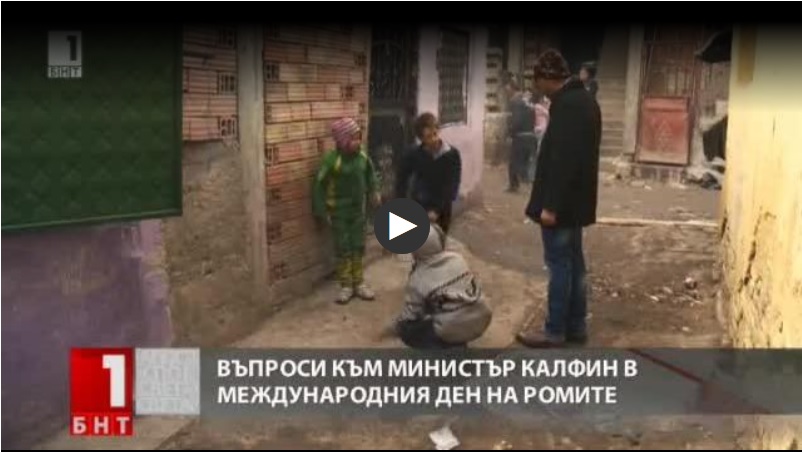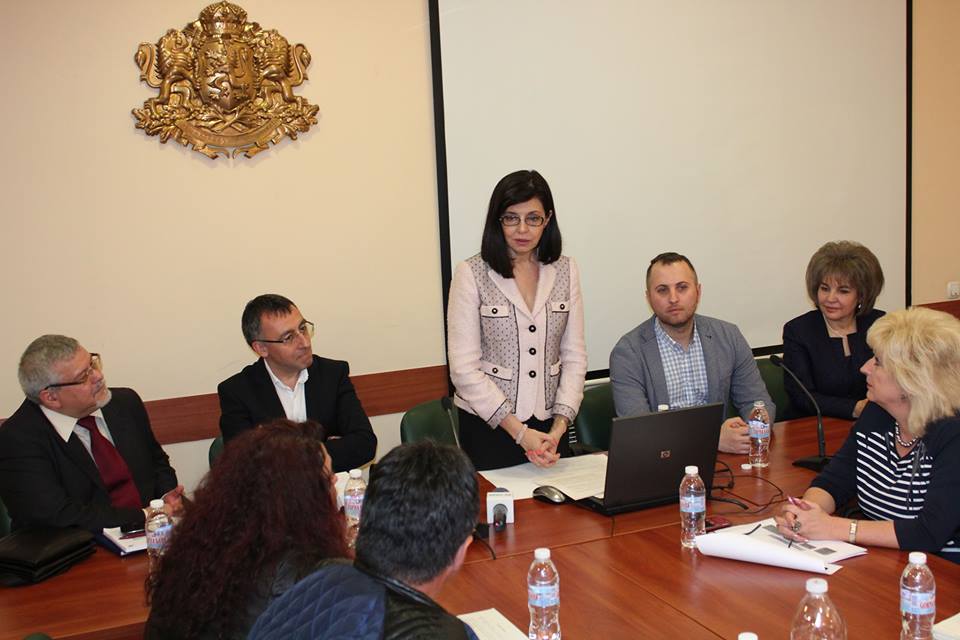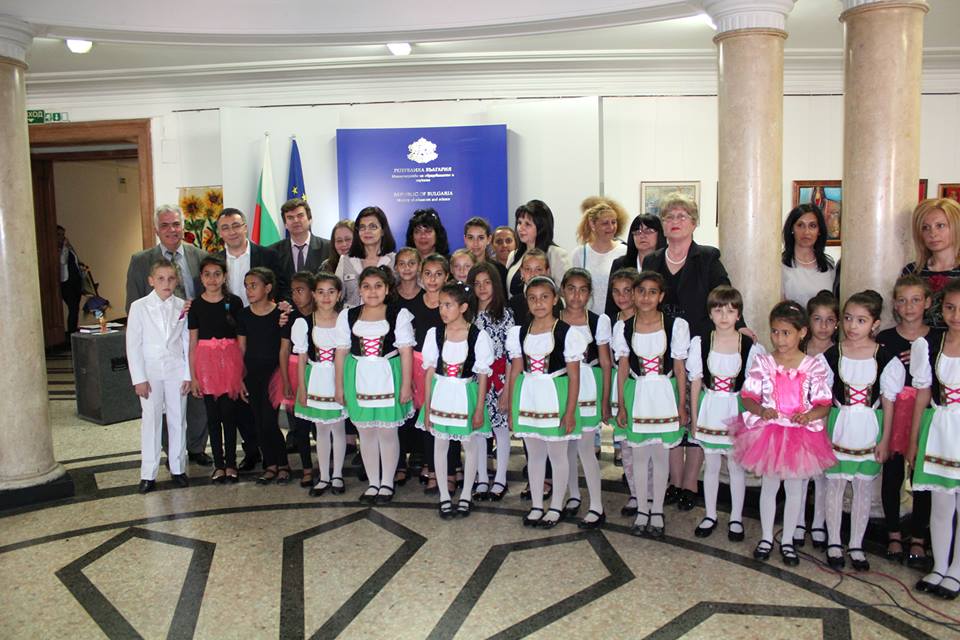11.04.2016Free kindergarten was supported by Deputy Prime Ministers Kalfin and Donchev during a conference organized by Amalipe
It is necessary kindergartens to become free - for all children, irrespective of ethnicity and social status. It was one of the messages that united Deputy Prime Ministers Kalfin and Donchev and the participants in the conference "European Funds: Opportunities to support Roma integration", which was held in Sofia on the International Roma Day 8 of April.
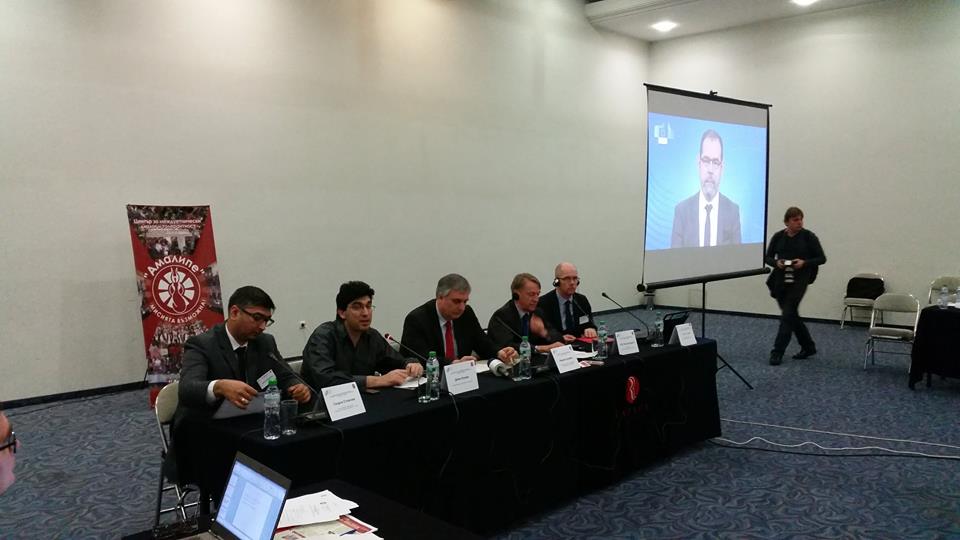
"Probably among the most important policies that give the best and most sustainable results is the inclusion of children at risk, including Roma children in the education system at the earliest possible stage of their development," said Deputy Prime Minister Kalfin at the opening of the conference. He explained that he was currently working on the realization of the idea of providing full access to education for children from their first age - including assuring of free access to nursery and kindergarten for all Bulgarian children without separation of Bulgarians and Roma, poor or rich people. "Funding is needed to secure free access to kindergartens, but the achieved resultant will certainly justify the money spent," said Kalfin. Free kindergarten inititaive is also a cause that the Trust for social achievement and World Bank, with the support of 23 NGOs across the country (including Amalipe) overlap for two years in their program "Ready for School".
"I support the idea of my colleague Kalfin!" was the first reaction of Deputy Prime Minister Donchev, who included in the final panel of the forum. We will make efforts for its implementation, relying on you!", said Monister Donchev to the organizers of the forum.
It was one of the results of the conference, which was organized by the Center for Interethnic Dialogue and Tolerance "Amalipe" and "Open Society" under the patronage of Deputy Prime Minister Ivaylo Kalfin. It also included representatives of the European Commission, World Bank, ambassadors, MAs of key programs related to Roma integration, non-governmental organizations. The participants agreed to two other suggestions:
- Establishing a political mechanism for joint programming of operations for Roma integration, funded by the Programs of EU, the EEA Financial Mechanism, Swiss Cooperation Programme and other instruments;
- Preparation of an updated Plan of Operations for Roma integration, funded by the Programs of EU, the EEA Financial Mechanism, Swiss Cooperation Programme and other tools
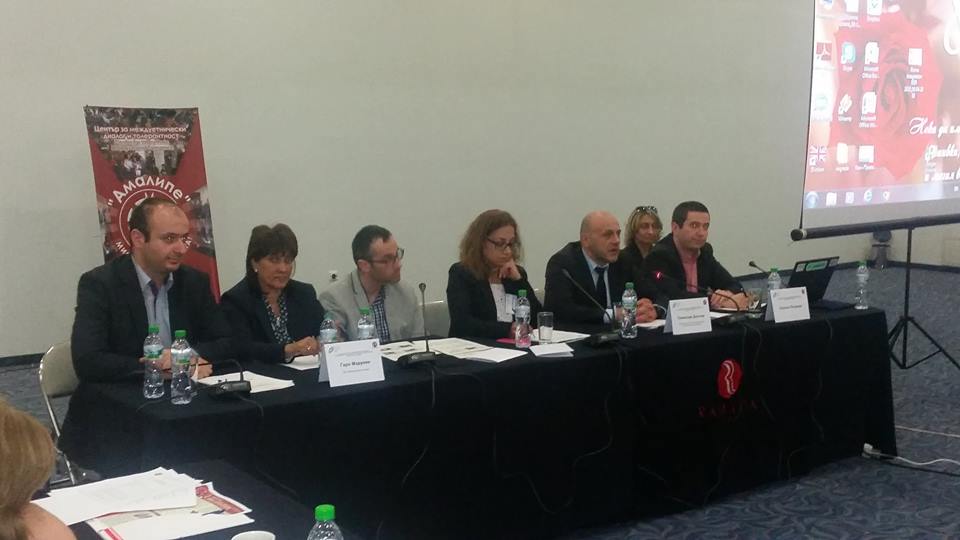
Detailed information about the Forum, presentations and conclusions made, will be uploaded on www.amalipe.com
It is necessary kindergartens to become free - for all children, irrespective of ethnicity and social status. It was one of the messages that united Deputy Prime Ministers Kalfin and Donchev and the participants in the conference "European Funds: Opportunities to support Roma integration", which was held in Sofia on the International Roma Day 8 of April.
"Probably among the most important policies that give the best and most sustainable results is the inclusion of children at risk, including Roma children in the education system at the earliest possible stage of their development," said Deputy Prime Minister Kalfin at the opening of the conference. He explained that he was currently working on the realization of the idea of providing full access to education for children from their first age - including assuring of free access to nursery and kindergarten for all Bulgarian children without separation of Bulgarians and Roma, poor or rich people. "Funding is needed to secure free access to kindergartens, but the achieved resultant will certainly justify the money spent," said Kalfin. Free kindergarten inititaive is also a cause that the Trust for social achievement and World Bank, with the support of 23 NGOs across the country (including Amalipe) overlap for two years in their program "Ready for School".
"I support the idea of my colleague Kalfin!" was the first reaction of Deputy Prime Minister Donchev, who included in the final panel of the forum. We will make efforts for its implementation, relying on you!", said Monister Donchev to the organizers of the forum.
It was one of the results of the conference, which was organized by the Center for Interethnic Dialogue and Tolerance "Amalipe" and "Open Society" under the patronage of Deputy Prime Minister Ivaylo Kalfin. It also included representatives of the European Commission, World Bank, ambassadors, MAs of key programs related to Roma integration, non-governmental organizations. The participants agreed to two other suggestions:
- Establishing a political mechanism for joint programming of operations for Roma integration, funded by the Programs of EU, the EEA Financial Mechanism, Swiss Cooperation Programme and other instruments;
- Preparation of an updated Plan of Operations for Roma integration, funded by the Programs of EU, the EEA Financial Mechanism, Swiss Cooperation Programme and other tools

Detailed information about the Forum, presentations and conclusions made, will be uploaded on www.amalipe.com



